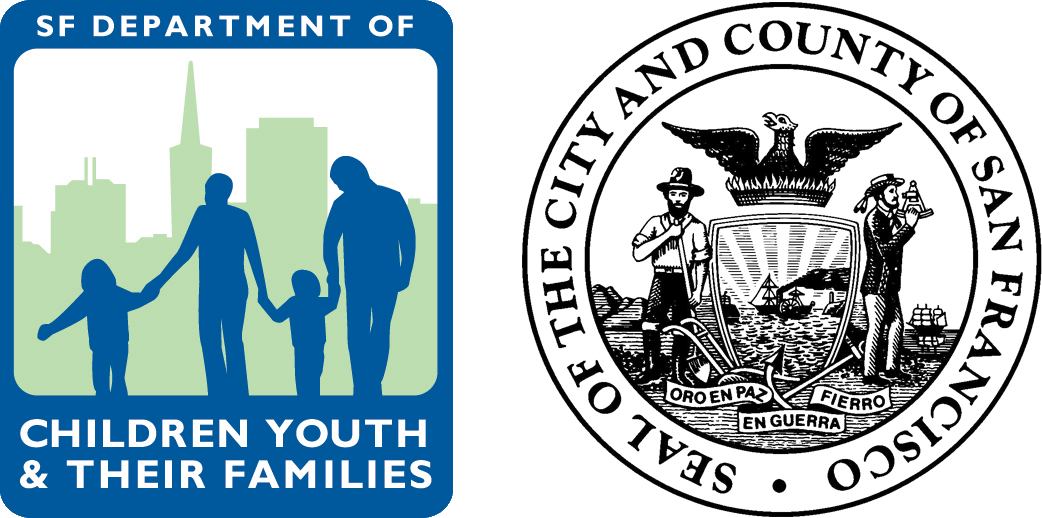Service AreaS
Enrichment, Leadership and Skill Building
SERVICE AREA DESCRIPTION
The Enrichment, Leadership and Skill Building (ELS) Service Area includes programs that provide opportunities for children, youth and disconnected transitional age youth (TAY) to learn specialized skills, build positive personal identities, increase their social and emotional learning skills and improve their leadership abilities through project and curriculum based programming. This Service Area includes DCYF’s Youth Empowerment Allocation, a set aside required by the City Charter that requires that at least three percent of the Children and Youth Fund be reserved for youth-initiated projects.
The ELS Service Area includes the following strategies: Arts and Creative Expression; Identity Formation; Science, Technology, Engineering and Math (STEM); Service Learning; Sports and Physical Activity; Youth Leadership, Engagement and Organizing and Youth-led Philanthropy.
Service Area need
Success in school and in life depends on more than academic ability alone. Research conducted by the Collaborative for Academic, Social, and Emotional Learning has demonstrated that social and emotional competencies have a significant impact on students’ academic performance and persistence in school as well as their broader life success, as measured by a variety of health, wealth and well-being indicators in adulthood. Many skills or competencies fit under the umbrella of social and emotional learning (SEL); SFUSD and other members of the CORE Districts in California—districts that applied for and received a waiver from the No Child Left Behind federal accountability system—adopted the following four constructs as accountability metrics.
Growth Mindset. The belief that one’s abilities can grow with effort. Youth with a growth mindset see effort as necessary for success, embrace challenges, learn from criticism, and persist in the face of setbacks.
Self-Efficacy. The belief in one’s own ability to succeed in achieving an outcome or reaching a goal. Self-efficacy reflects confidence in the ability to exert control over one’s own motivation, behavior and environment. Self-efficacy can boost youth achievement and emotional health and well-being.
Self-Management. The ability to effectively manage one’s emotions, thoughts and behaviors effectively in different situations. This includes managing stress, delaying gratification, motivating oneself, and setting and working towards personal and academic goals. Strong self-management skills are associated with fewer dropouts, better academic and social outcomes, and better outcomes with regard to physical health, substance dependence, personal finances and criminal offenses.
Social Awareness. The ability to take the perspective of and empathize with others from diverse backgrounds and cultures, to understand social and ethical norms for behavior, and to recognize family, school, and community resources and supports. Social awareness may contribute to better behavior and achievement in school and increased engagement with community and school resources (associated with better peer relationships, fewer risky behaviors).
Analysis of SEL assessments administered by SFUSD show that African American, Hispanic/Latino and Pacific Islander children and youth consistently score below average across grade levels in at least three of the four SEL areas described above. Factors that the CORE Districts found to contribute to lower SEL scores include stereotypes and bias, low expectations for student’s abilities, unresolved childhood trauma and basic needs not being met. DCYF’s ELS Service Area is designed to support programming to address these issues and promote SEL skills.
In addition to promoting SEL skills, the ELS Service Area is designed to address the learning and developmental needs of children and youth. The National Education Association highlights the value of project based learning as a teaching model; older youth can acquire a great deal of knowledge and skills through hands-on experiences and engagement. Additionally, given the autonomy older youth have over their time outside of school, project based and/or youth-led programming that explores a diverse set of topics and experiences can be a strong method for engaging and retaining this age group of youth in safe and productive activities that support their learning and development.

